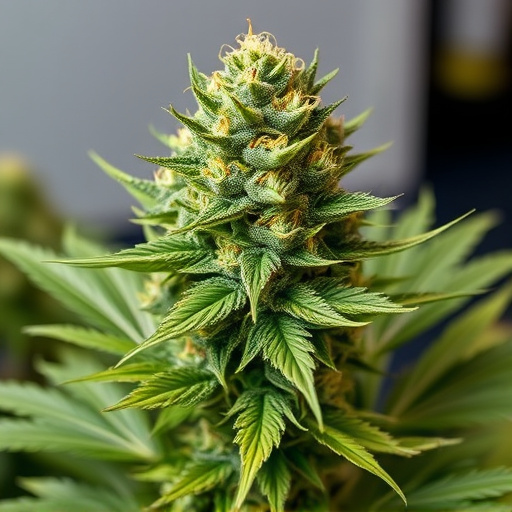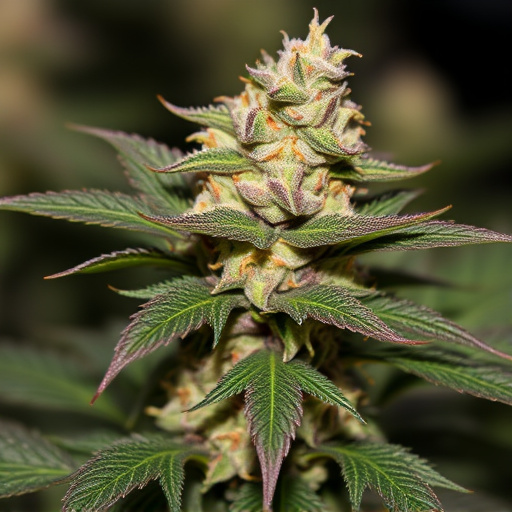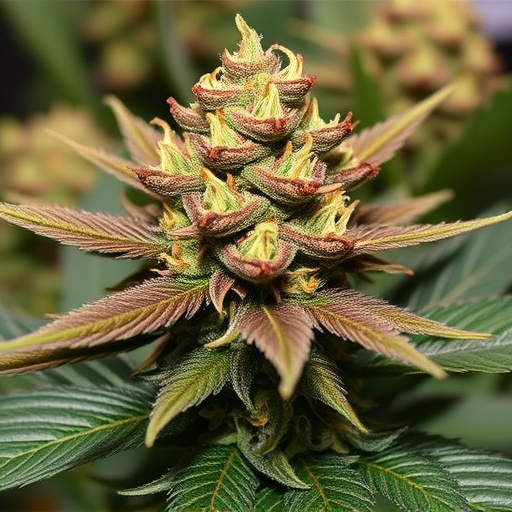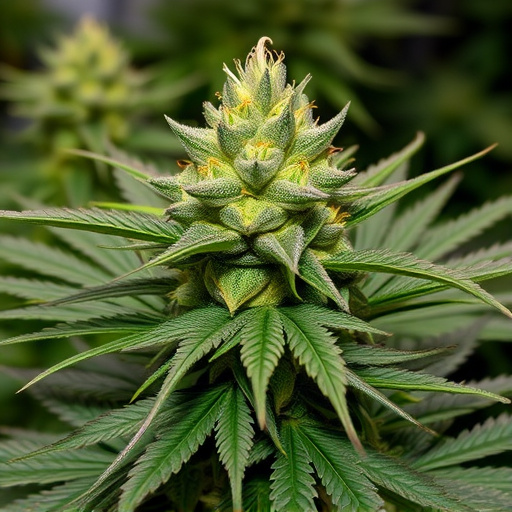Smoking Big Bud strains offers recreational benefits but carries immediate and short-term risks, including heightened senses, increased appetite, relaxation, and altered perceptions. Negative impacts like rapid heartbeat, anxiety, paranoia, concentration issues, and dizziness can be more pronounced for newcomers or users consuming in excess. Strain potency, consumption method, health status, and individual tolerance affect the intensity of these side effects. Understanding short-term effects is crucial for informed decisions regarding Big Bud strains, especially considering potential mental and cognitive impacts with long-term use.
“Unraveling the complexities of marijuana use, this article delves into the often-overlooked side effects associated with chronic consumption, particularly focusing on the potent ‘Big Bud’ strains. From immediate physical reactions to long-term health risks, we explore the full spectrum of impacts. We also provide practical solutions and coping strategies, including medical options, support groups, and lifestyle adjustments, offering a comprehensive guide for those seeking to navigate or overcome the negative effects of marijuana use, especially as it pertains to powerful Big Bud strains.”
- Short-Term Side Effects of Big Bud Strains Consumption
- – Physical reactions
- – Mental and cognitive impacts
Short-Term Side Effects of Big Bud Strains Consumption
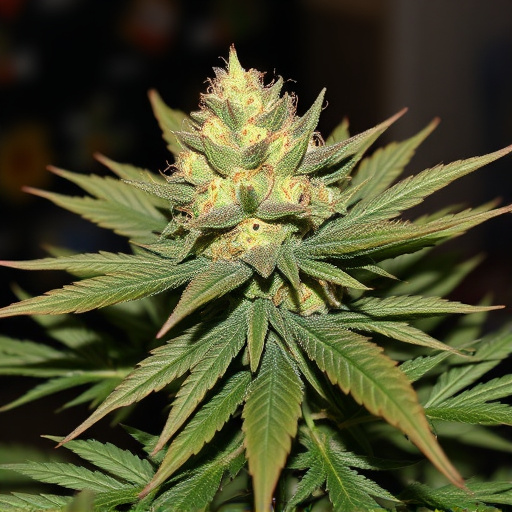
Smoking Big Bud strains, like any cannabis consumption, comes with immediate and short-term side effects. Users often experience heightened senses, increased appetite, relaxation, and a general alteration in perception. However, for some individuals, particularly those new to these strains or consuming in excess, negative impacts can be more pronounced. Short-term effects may include rapid heartbeat, anxiety, paranoia, difficulty concentrating, and even dizziness. These sensations are typically temporary, lasting a few hours after consumption, but they underscore the importance of responsible use, especially for first-time users of potent Big Bud strains.
The intensity of these side effects can vary greatly depending on factors like individual tolerance, strain potency, consumption method, and overall health. While many people enjoy the recreational benefits of cannabis, it’s crucial to be aware of potential drawbacks, especially when dealing with high-THC strains like Big Bud. Understanding these short-term effects is a step towards making informed decisions about one’s smoking habits.
– Physical reactions
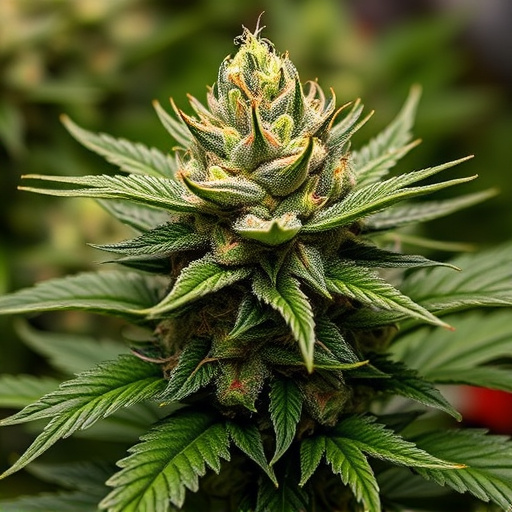
Smoking weed, or cannabis, can trigger various physical reactions in the body, especially with potent big bud strains. Short-term effects include rapid heartbeat, increased blood pressure, and heightened senses, which might lead to dizziness or lightheadedness. These sensations are often accompanied by a feeling of euphoria and relaxation due to the activation of brain areas associated with pleasure and reward. However, for some individuals, these physical changes can be uncomfortable or even concerning.
The impact on the cardiovascular system is noteworthy, as cannabis use can cause a temporary increase in heart rate and blood pressure, which might be more pronounced in those with pre-existing heart conditions. Respiratory issues are another consideration; smoking any substance, including weed, can irritate the lungs and lead to coughing or difficulty breathing. Regular users may also experience dry mouth and eyes, as well as changes in appetite, resulting in either increased or decreased hunger.
– Mental and cognitive impacts
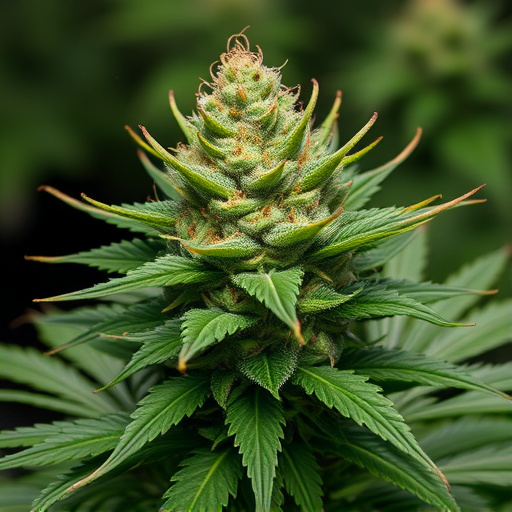
Smoking weed, or cannabis, has been linked to various mental and cognitive impacts, particularly with frequent and long-term use. Research suggests that regular users may experience changes in brain structure and function, affecting memory, attention, and problem-solving abilities. These effects can be more pronounced in young people whose brains are still developing. The potent big bud strains available today often contain higher levels of THC (tetrahydrocannabinol), the primary psychoactive compound, which can intensify these mental impacts. Users may notice difficulties in concentration, reduced cognitive flexibility, and even potential long-term memory issues.
Additionally, cannabis use has been associated with an increased risk of developing mental health disorders such as anxiety, depression, and psychosis, especially in individuals with a genetic predisposition or those who start using at a young age. While some users may experience temporary relief from stress or anxiety symptoms, the potential long-term consequences on mental well-being cannot be overlooked. It’s important to understand that individual experiences can vary, and factors like strain potency, method of consumption, and frequency of use play significant roles in determining the extent of cognitive impacts.
While the short-term effects of Big Bud strains can vary from individual to individual, it’s clear that cannabis consumption has potential physical and mental consequences. From heightened heart rate and anxiety to cognitive impairment and memory issues, understanding these side effects is crucial for responsible use. Further research highlights the importance of moderation and informed decisions when engaging with Big Bud strains or any other potent cannabis varieties.









